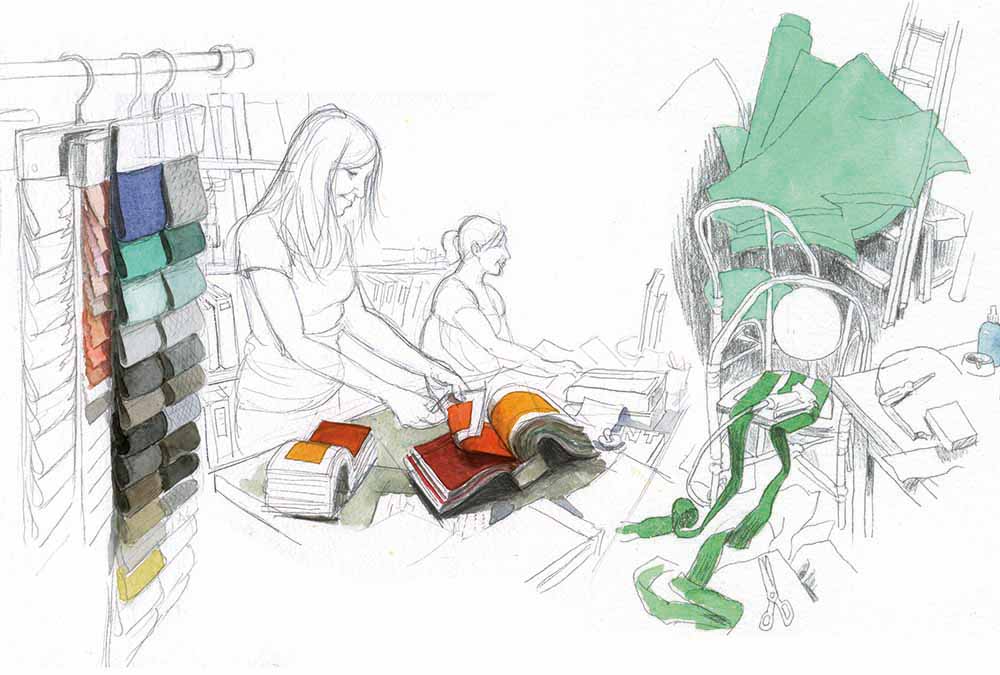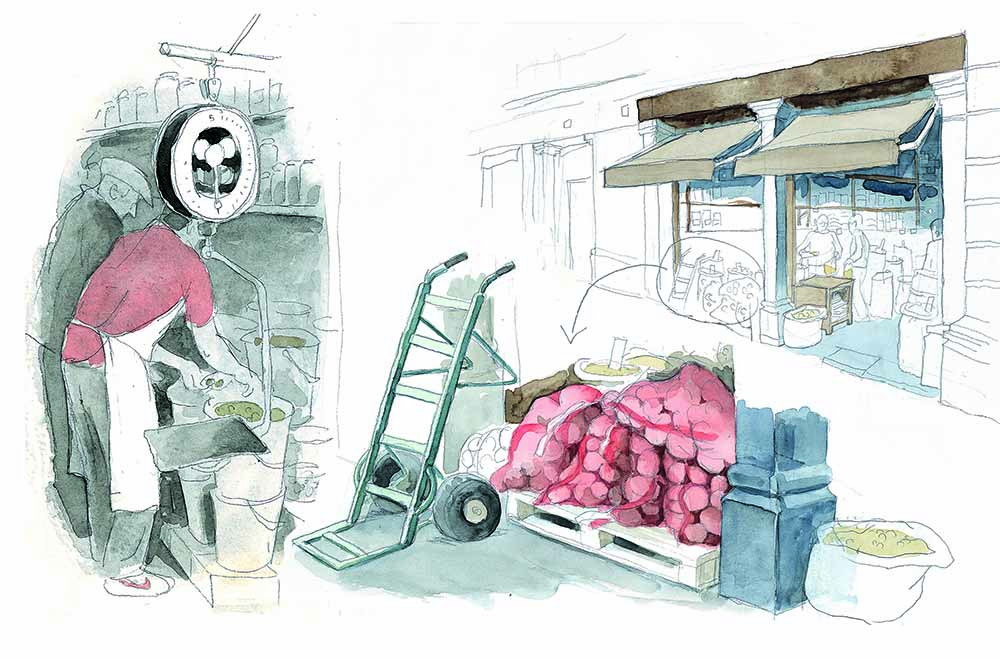[dropcap letter=”W”]
hile citizens of large cities rely more and more on online shopping, retailers are gradually disappearing. Every time a local store shuts down, it is not just a place to supply and purchase goods that disappears, but also a meeting point for chit-chat and sharing emotions between regular customers, which had become an extension of their own homes. In a time when life expectancy stands at over 82 years, one of the few public spaces where the elders are treated as citizens and protagonists is the small retailer that has taken root in the local area. Nothing beats the pleasure for our ears of eavesdropping the small talk on wise insights into life between a shopkeeper and a local; such insights revolve around happiness and pain, and they use this space to delve into everyday matters. Nowadays, small retailers still feel proud of their counter, both physically and mentally, as they mark the frontier between seller and buyer and clearly define a space of respect and attention.
There was a time in the past, of which some remains stand, when going into a shop involved the presence of a shopkeeper who knew all the ins and outs of the products he sold, was aware that he was at his customer’s service, and respected both those who bought and those who just said hello as they passed by.
Our desire for a technological world is distancing us from personal attention that transfers values of civility to every purchase
The gradual ignorance of citizens of the value of the small retailers of our country is just as critical as the lack of sensitivity by some towards the consequences of climate change. In the past, we used to ignore the importance of things and only appreciated their relevance once we had lost them; now, even when we lose something, we are totally unaware of its importance. Drug stores, greengrocers, book shops, delis, tailor shops, shoe shops or local cake shops are gradually being exposed not only to competition from large retailers and their own inability to adapt fast enough to new technologies, but also the gradual loss of cultural values of small retailers because they contribute to adding kindness to the public space.

Our desire for a technological world is distancing us from personal attention that transfers values of civility to every purchase. Knowing that many shops from Rambla de Catalunya and Passeig de Gràcia in Barcelona are selling online almost 30% of their goods and that many of the big clothes brands have accepted that their future is online, and maintain their shops for window-shopping, should make us reflect on the expansion of the use of the web without the human factor. Ignoring the human factor, overlooking small-scale businesses and direct contact with the customer can destroy bonds and affection that the web can hide but not substitute.
Santiago Rusiñol in L’auca del senyor Esteve offers a fair reflection on the impact of “a counter that will get lost in the hads of progress”. The concept of economy around the counter is economy of direct contact, of kindness, of attention and proper service; it is an economy that understands that when someone gets into a shop, it is not always to buy something but, sometimes, the real reason is to continue feeling part of a community.






















